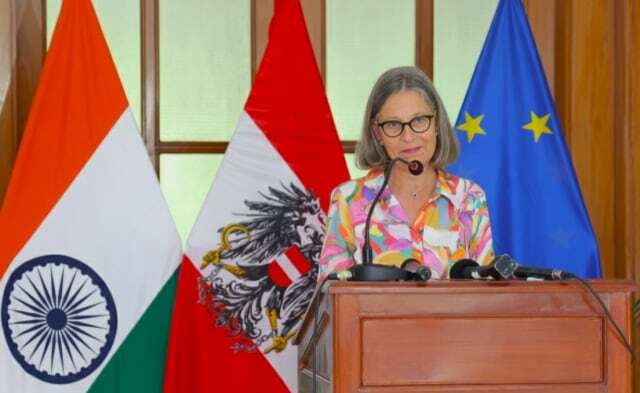Low fees, global opportunities: Austria stakes big on Indian STEM talent
By | International | 21-Sep-2025 12:55:58

News Story
Austria is turning its gaze toward India, offering Indian STEM students an
affordable, high-quality pathway to advanced education and international work
experience. Katharina Wieser, Austrian Ambassador to India, and Armstrong Pame,
Joint Secretary in the Union Ministry of Education, announced a landmark
collaboration on September 19 between Austria’s technical universities and VFS
Education Services aimed at boosting India-Austria academic ties and student
mobility.
The partnership brings together three
prestigious institutions—TU Wien, TU Graz, and TU Leoben—opening doors for
Indian engineering graduates from ANABIN-recognized colleges to pursue Master’s
degrees in fields ranging from AI, robotics, and biotechnology to sustainable
technologies and industrial data science. TU Leoben will also offer specialized
Bachelor’s programmes in Geo-energy Engineering, Circular Engineering, and
Responsible Consumption & Production (EURECA-PRO).
Affordable,
world-class education
“Austria has a long tradition of world-class higher education, particularly
in engineering, quantum mechanics, and AI—areas central to India’s academic
priorities,” Ambassador Wieser said. “Our universities offer moderate fees, but
that doesn’t compromise quality. We treat higher education as a public good,
extensively supported by government and society.”
Master’s students will benefit from a two-year
programme that combines rigorous theory with hands-on industry experience,
including internships. Subsidised tuition fees are €726.72 per semester, plus a
€25 student union fee, while students cover costs such as travel,
accommodation, insurance, and visas.
Tapping
India’s talent pool
Highlighting India’s untapped potential, Pame noted, “India has over 54
institutions in the QS World Rankings, yet the Gross Enrolment Ratio is under
30%. Millions of talented students narrowly miss IITs and NITs. Austria’s
outreach can provide them a global stage.”
Eligible applicants must hold a BE/BTech/BSc
(Hons) in a relevant discipline with a minimum GPA of 2.5 on the Austrian scale
(around 65–70% in India) and demonstrate English proficiency. Selected students
will also enjoy a one-year post-study visa extension for international work
experience. Applications for Summer and Winter 2026 intakes are open through
the VFS Education Services portal.
Why
Austria is betting on India
Austria faces a shortage of STEM graduates as European students increasingly
shy away from technical fields. “Industries urgently need skilled graduates.
India, with its vast pool of talent, is a natural partner,” Wieser said.
Austria already hosts students from over 80 countries, and Indian students fit
the demographic and collaboration goals perfectly.
With stricter visa policies in the US, UK, and
Australia, Austria sees an opportunity to attract top talent. While German
remains the national language, three-quarters of Austrian programmes are taught
in English, making the transition easier. Students can work 20 hours a week
during studies, with post-graduation options like Austria’s Red-White-Red Card
and the EU-wide Blue Card providing broader European employment prospects.
Safety
and integration
Wieser emphasized Austria’s safety, noting low crime rates even in smaller
university towns. “We designate officers as points of contact for international
students to ensure security and integration,” she said.
Focus on
partnerships, not campuses
Austrian universities plan partnerships with Indian institutions rather than
setting up campuses in India. Prof Peter Moser, Rector of TU Leoben, stressed,
“We want Indian students to experience Austria’s education, culture, and
innovation firsthand, not replicate it elsewhere.”
With affordable tuition, robust industry exposure, and a pathway to European work opportunities, Austria is positioning itself as a strategic and attractive destination for India’s next generation of STEM talent.